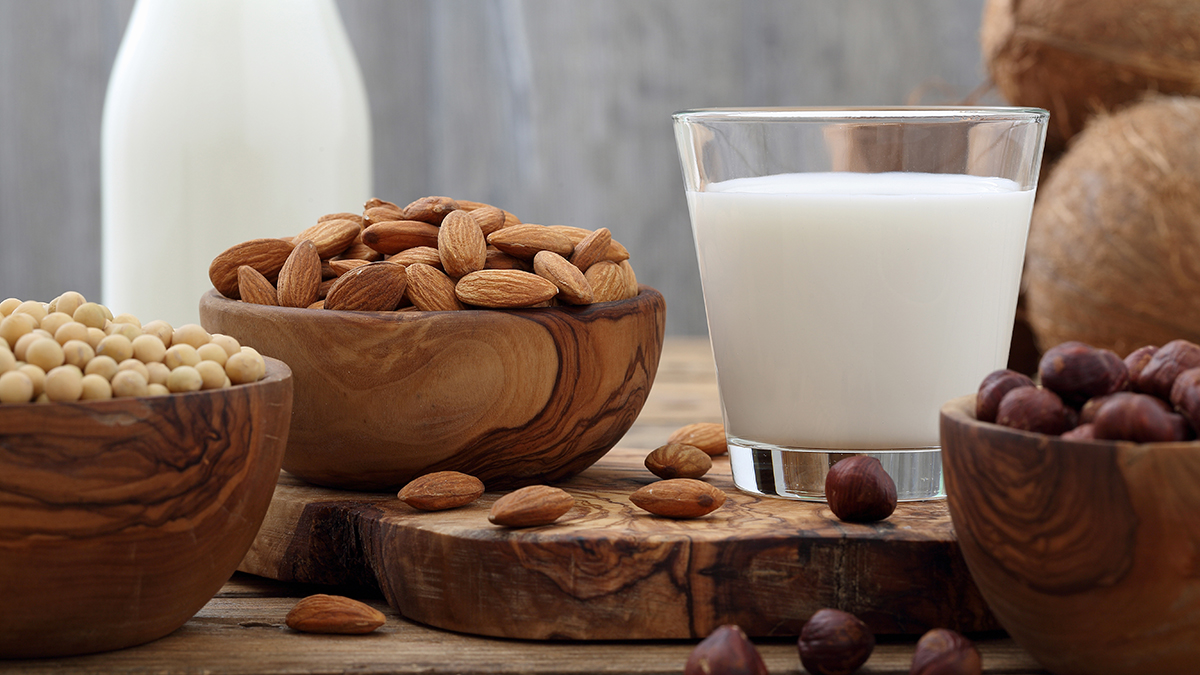Skinny soy frappes, almond milk breakfast bowls—whatever your flavour, there’s no doubt the number of people searching for dairy-free milk alternatives is on the rise.
So why are people opting to kiss cow’s milk goodbye? Lactose intolerance and milk allergies are the obvious reasons; for others, the decision may stem from a personal concern for the environment or animal rights, or come simply down to taste preference.
There are also several health benefits associated with eating a predominantly plant-based diet that may include dairy-free milks, with studies showing improved digestion, increased energy, lower body mass index and an improvement in their physical function.
Here’s the lowdown on the most common types, and whichever you choose, opt for one that’s fortified with calcium, vitamin B12 and vitamin D.
Almond milk
Fans of almond milk continue to grow worldwide, with many attracted to its nutty taste, making it a great option for fruit smoothies, cereals and both sweet and savoury cooking.
Almond milk tends to be lower in kilojoules than dairy milk and is lower in saturated fat, making it an effective choice for weight control or management.
Soy milk
Soy milk is the nutritional king of the alternative aisle, according to a new study by Canada’s McGill University.
Researchers analysed the nutritional value of four commonly consumed plant-based milks (soy, rice, almond and coconut) and compared them to cow’s milk. Researchers identified soy milk as the closest to cow’s milk in terms of overall nutrient balance and it also contained the most protein of all the milk alternatives.
Soy milk typically has a thicker consistency than other milks with a less sweet flavour, so is a good bet for cooking or savoury dishes.
What about these options?
Coconut milk has higher amounts of saturated fat compared to many other dairy-free milks and is lower in calcium and protein, so use sparingly. Due to its tropical coconut flavour, it’s a nice option for savoury dishes. Keep an eye on varieties with no added sugar.
Rice milk can be a great alternative for those with dairy, soy or nut allergies. It is low in saturated fat and often fortified with calcium, but it is generally lower in protein compared to soy milk. Rice milk also tends to have higher levels of natural sugars, in some cases double the amount found in soy milk.
If you’re into DIY, oat milk is relatively simple to make and may be an option if you have a soy or nut allergy. Oat milk is low in saturated fat, but it’s also low in protein and not all oat milks on the market are fortified with calcium or vitamin B12.







